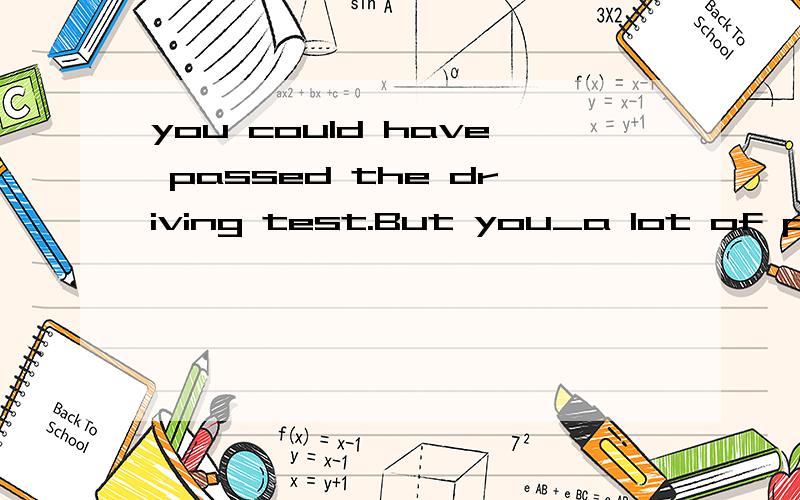you could have passed the driving test.But you_a lot of practiceA would not doB hadn't doneC would not have doneD didn't do
来源:学生作业帮助网 编辑:作业帮 时间:2024/11/28 02:14:50

x�œ�n�@�_eo�T�R)�Q�6H 0�r3��!
&m�
"�D0EQ
��t�|�:�N
�詇�ֳ���f��T�,�E�d�DE��S
�����"�XCj:~O|@��ѕpVG���������Q*
����}�� ��0���W����\Iq� 5�D�ҁ�/E�M�О9hG��z
�B��?רD�Tjn�Y�
7"��l�
���
�$g�n/��vOg}�Yrh��FG��
�)���_�
�
|�Td���Nu�s�$�k>:w[
���f��i}Ț7xn���C��%Ȥ�������C��l<��Cnw����h���;:mnW�^��
���Z�e���ܫ2����QiKt=��,��=_�5,p��>��7����]�I��'��U4�(�Y��+d0rK&s�x��է�
�>�XDy���'�I�C��F����%�/�+�sG;����
��
��E�G�?Ħ�G��^��(|2+n� �
/ʀy̡�EA�{�D�KH��<
P��c�9c�I�K���e�ĸ+�,�_�?��
��5i�
�ae�_|F�\�
you could have passed the driving test.But you_a lot of practiceA would not doB hadn't doneC would not have doneD didn't do
you could have passed the driving test.But you_a lot of practice
A would not do
B hadn't done
C would not have done
D didn't do
you could have passed the driving test.But you_a lot of practiceA would not doB hadn't doneC would not have doneD didn't do
选D
前面的could have done是本能够做某事却没能做 的意思.是对过去事情的评论.
but后面是对过去事情的客观阐述,直接用一般过去时.
d
第一句话是虚拟语气,could have done本可以做。后面是陈述语气,是客观事实。
你本可以通过驾照考试(假设),但你没有大量练习(现实)。
D. didn't do
前一句是虚拟,可翻译为:你本来可以通过驾驶考试的。言外之意就是没有通过。But...讲的是为什么没通过,可翻译为:但是你却练的不够。练的不够是已经发生了的,所以,用过去时didn't do。
答案是B. hadn't done
You Could Have 歌词
how could you have done
Could Have Been You 歌词
then you could have asked four more
Could you have some more?是什么意思
Could you have _____ more rice
I could have been all over you.
could l have you name please是什么意思
If I Could Have You Back 歌词
if i could have you back
How could I have you in my
Could you let me----(have)supper?
Could I have= Could you give me Could I have some water?= Could you give me some water?
Could I have= Could you give me Could I have some water?= Could you give me some water?
You could have been gerat,I could have been love you
you are the best cat a guy could have.中的could have
Please kindly send all the hotel booking to this e-mail as soon as you could tomorow as urgent needPlease kindly send all the hotel booking to this e-mail as soon as you could tomorow as urgent need to present to the chinese cosultant for the 3 passe
do you have any regrets about things you wish you could have done earlier?翻译